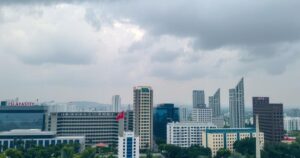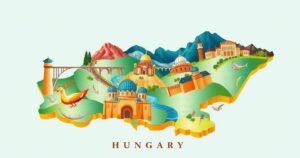Tunisia’s Presidential Election: A Contested Vote with Limited Opposition

Tunisia’s presidential election is characterized by a lack of significant opposition, as prominent rivals are either imprisoned or excluded from the ballot. President Kais Saied, who initially rose to power amid calls for reform, now faces concerns about the legitimacy of his governance and the implications for Tunisia’s democracy amid ongoing economic difficulties and societal tensions.
Tunisia held a presidential election amidst a climate of skepticism regarding the possibility of a significant political shift, as the incumbent President Kais Saied faced minimal opposition. With major rivals either imprisoned or excluded from the ballot, Saied’s re-election seems likely. Five years prior, he won his first term by harnessing an anti-establishment sentiment. This election marks a significant moment in Tunisia’s political landscape, being the third since the 2011 overthrow of President Zine El Abidine Ben Ali during the Arab Spring, which previously positioned Tunisia as a beacon of democratic hope in a region rife with tumult. Historically, Tunisia was celebrated for its democratic progress following the Arab Spring, having established a new constitution and earned recognition when its civil society was awarded the Nobel Peace Prize for political mediation. However, the subsequent governments struggled with economic decline, leading to political strife and violence. Saied, an outsider at the time, was elected in 2019 on a promise of reform, emphasizing youth empowerment and local governance. The current election serves as an indicator of public sentiment regarding the direction of Tunisia’s democracy under Saied, especially after he consolidated power in 2021, actions that many critics deemed a coup. Despite these contentious measures, Saied’s supporters appear steadfast. However, concerns persist regarding the depth of this support and how it translates into actual electoral turnout, particularly with previous elections witnessing diminished voter participation. The electoral process has been marred by limitations on opposition candidates, with only three candidates remaining eligible — President Saied and two other lesser-known figures, Zouhair Maghzaoui and Ayachi Zammel. Maghzaoui faces disdain from certain opposition factions despite campaigns against Saied’s policies, while Zammel’s campaign is undermined due to his legal troubles. Notably, many popular opposition leaders, including Rached Ghannouchi of Ennahda, remain jailed, raising serious questions about the election’s legitimacy. As Tunisia grapples with economic adversity, high unemployment rates affecting the youth, stalled negotiations for vital International Monetary Fund support, and immigration concerns, the stakes for this election extend well beyond the presidential seat. Saied’s administration has also confronted issues related to both local economic difficulties and stricter measures on sub-Saharan migrants, showcasing a troubling trend of anti-immigrant rhetoric contributing to social unrest. Internationally, Tunisia under Saied balances its historical partnerships with Western nations while also seeking to cultivate new relationships, highlighting a pursuit of sovereignty that echoes populist sentiments globally. Despite potential isolation, ongoing cooperation with European states suggests that Tunisia remains a key partner in addressing broader regional challenges. This election is crucial not only for Tunisia’s internal stability but also for its international relationships in a significantly changing geopolitical landscape.
The political backdrop of Tunisia’s current presidential election is shaped by a decade of change since the Arab Spring uprisings. Initially hailed as a success story, the country faced numerous challenges, including economic stagnation and political turmoil, which have diminished public trust in the democratic process. Since its first democratic election, Tunisia’s political scene has evolved, but recent developments, including President Kais Saied’s consolidation of power and the imprisonment of significant opposition figures, have raised alarms about the state of democracy. This election serves as a litmus test for Saied’s presidency and the future of political freedoms in Tunisia amidst ongoing socio-economic challenges.
In conclusion, the Tunisian presidential election is unfolding under profound skepticism and limited opposition, primarily due to the political maneuvers of President Kais Saied. With a backdrop of economic challenges and curbs on dissent, this election potentially signifies a critical juncture for Tunisia’s democratic aspirations. The outcome may reflect not only the weight of Saied’s policies on popular sentiment but also Tunisia’s positioning on the regional and international stage amid fluctuating geopolitical dynamics.
Original Source: www.euronews.com







